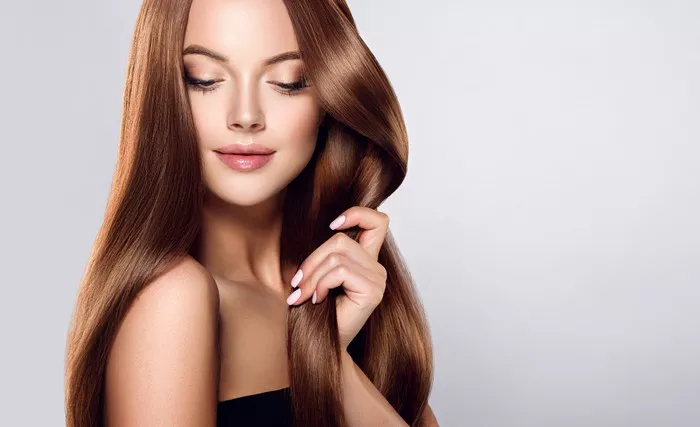For decades, women have turned to chemical hair straightening products to achieve sleek and smooth locks. However, recent studies have raised concerns, suggesting that the use of these products may be associated with an increased risk of uterine cancers. In light of this alarming discovery, the U.S. Food and Drug Administration (FDA) has proposed a ban on hair relaxers that emit formaldehyde.
A study conducted by researchers at the National Institutes of Health, published last year, revealed that women who use chemical hair straightening products were nearly twice as likely to develop uterine cancer compared to those who did not use these products. In response to these findings, the FDA is considering banning hair-straightening products containing or emitting formaldehyde, a known carcinogen found in many such formulas.
While additional research is required to definitively establish a causal link between these products and cancer, early results have raised considerable concern. Roger Giese, a professor of chemistry and biomedical science and director of the Environmental Cancer Research Program at Northeastern University, emphasizes the significance of epidemiology studies, stating, “There’s always these confounding factors… But I think in this case, it’s pretty clear that formaldehyde is a real worry. We know it’s a carcinogen. We know how it is a carcinogen. The results have been pretty sharp.”
The study also underscores the impact of these products on Black women, as they are more likely to use chemical straighteners. The majority of participants in the study who used straighteners identified as Black. The study’s author, Che-Jung Chang, Ph.D., notes that “Because Black women use hair straightening or relaxer products more frequently and tend to initiate use at earlier ages than other races and ethnicities, these findings may be even more relevant for them.”
Kabria Baumgartner, Dean’s Associate Professor of History and Africana Studies and the Associate Director of Public History at Northeastern, emphasizes that the use of these products extends beyond aesthetics. It is intertwined with a history of Black women being judged for wearing their hair in its natural texture. She states, “Too often Black hair has been fodder for debates about beauty. I think, for Black women especially, it’s been complicated… Some women might feel more pressure to use hair-straightening products.”
The discrimination faced by Black people, especially women, who choose to wear their hair in natural styles is a persistent issue. A study by Dove found that at least 53% of young Black girls experienced hair-based discrimination as early as age 5, and 81% of Black girls in majority-white schools wished for straight hair. Many states have enacted laws to prevent hair-based discrimination, and U.S. Rep. Ayanna Pressley has advocated for such legislation at the national level.
The history of Black women’s hair care products dates back to at least the early 1900s when Madam C.J. Walker introduced a line of hair products and straighteners for Black women, avoiding known carcinogens like formaldehyde. The 1960s and ’70s saw the rise of the Black Power Movement, with Black women reclaiming natural hair styles.
In response to the current concerns, Baumgartner advocates for scrutiny of the chemicals present in all hair and beauty products, emphasizing that safer alternatives should be explored. Ultimately, the choice of how to wear one’s hair should be a personal one, free from discrimination or external pressure, she asserts.


